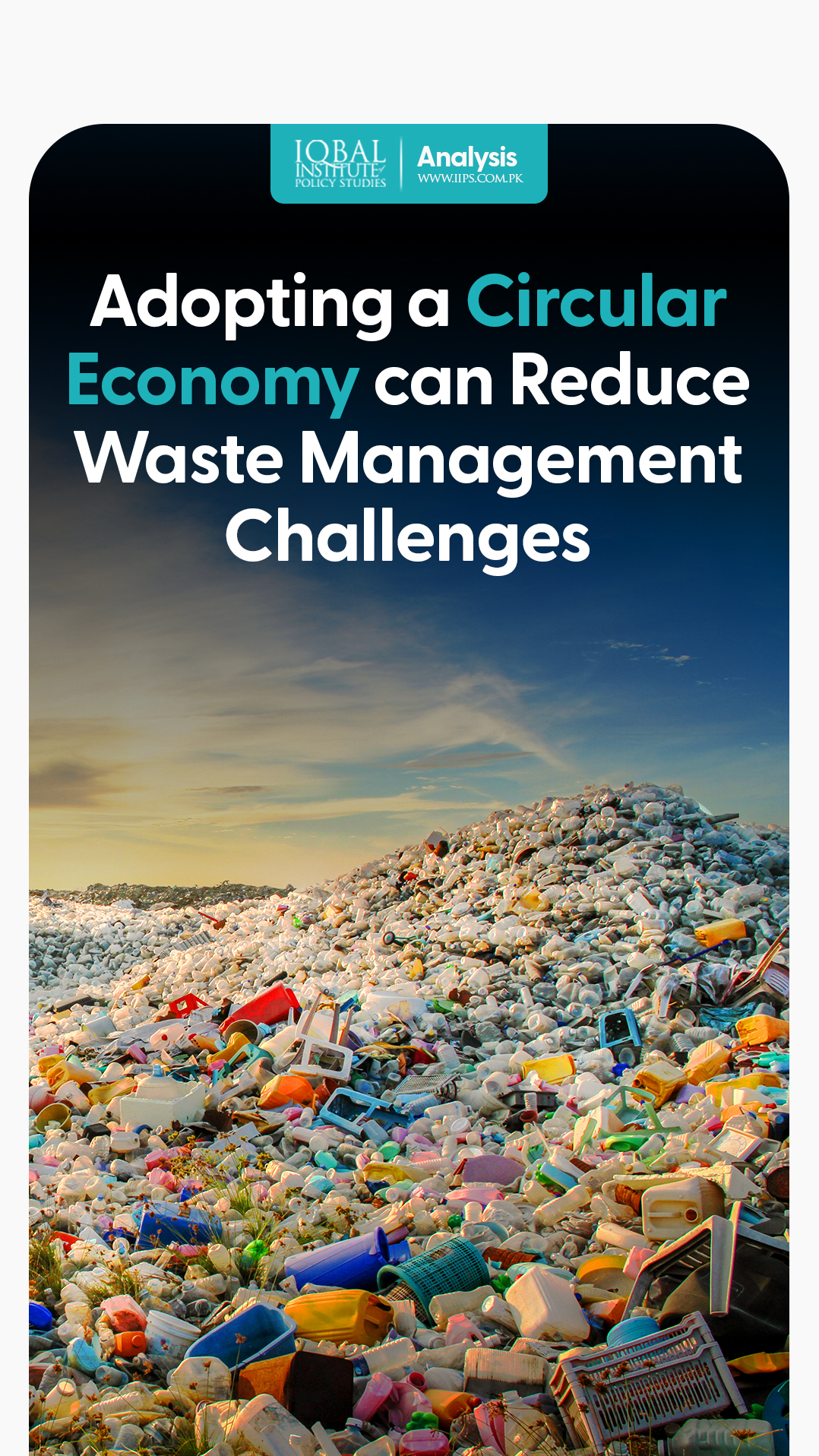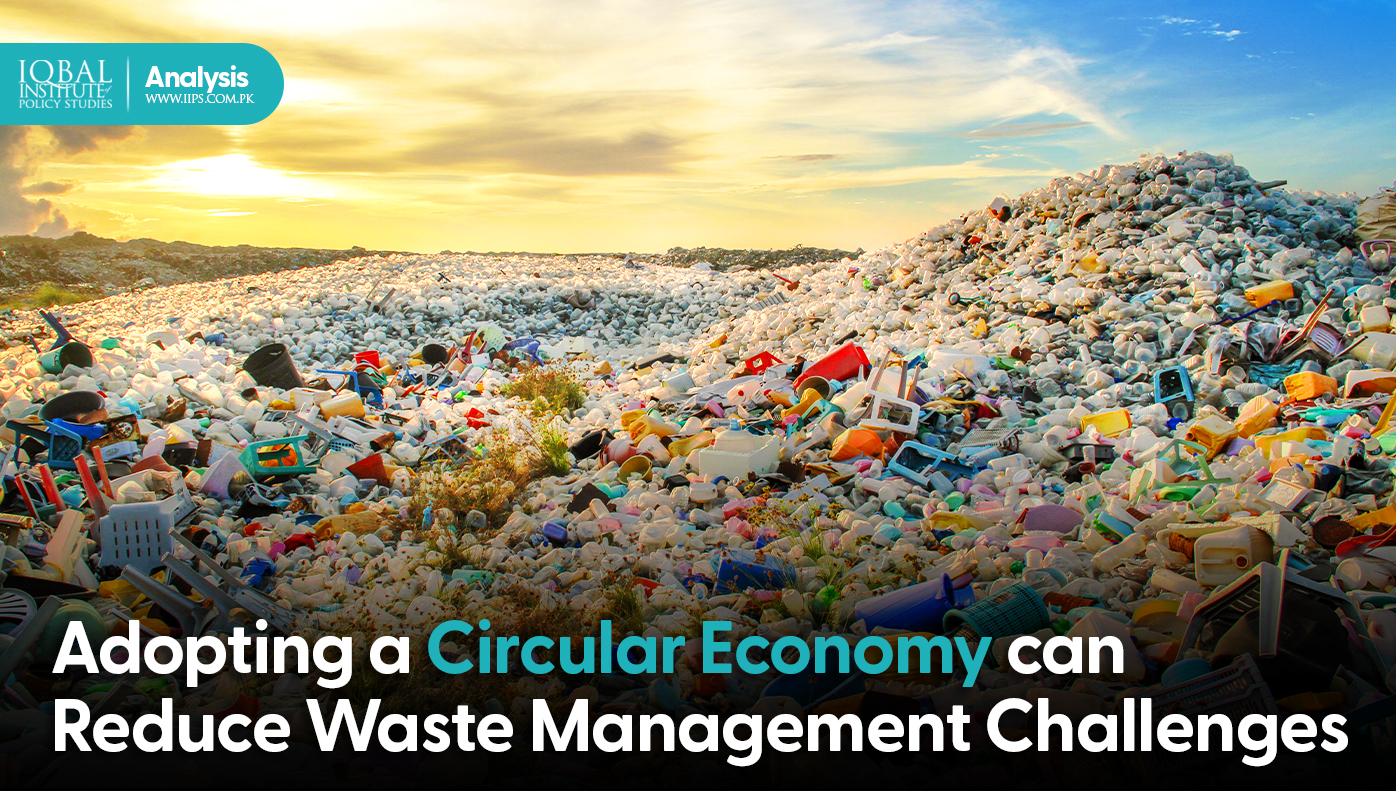According to the Asian Development Bank report 2021, the world generates 2 billion tons of municipal solid waste, including residential, commercial, and institutional waste. This is expected to grow to 3.4 billion tons by 2050. Similarly, plastic production and waste have also been increasing significantly.
Each year, nearly 400 million tons of plastic are produced, creating an adverse impact on the environment. During the pandemic, the single-use plastics have been increased by 300 per cent. The unsustainable disposal practices of plastic have detrimental effects on natural resources, further accelerating climate change.
The undisposed plastic generates greenhouse gas emissions during the production stage and extends to waste management in landfills or the natural environment. The government should focus on the take-make-waste approach, shifting towards a circular economy to address these issues.
According to the circular economic approach, instead of finding ways to manage growing amounts of waste materials, the government should focus on the root cause of the issue and explore ways to generate less waste.
A circular economy creates opportunities for recycling and utilising recycled materials to keep up with production and consumption demands. Moreover, a circular economy will help create new loops for plastics, utilising them as a resource so that it doesn’t end up in landfills.
Shifting to a circular economy will help achieve Sustainable Development Goals (SDGs), as it promotes investment in innovative technology and infrastructure and supports economic development. It is estimated that by 2030, the circular economy will generate an additional $4.5 trillion annually and provide more decent work opportunities through job creation in the formal sector (Asian Development Bank, 2022).
The circular economy is a new production and consumption model that promotes sustainable growth over time. Given the adverse impacts of undisposable waste materials, the government should follow the circular economy concept and apply it to almost every industry with clothing, construction, agriculture, food, automobiles, telecom, and furniture, rather than sticking to only a single sector.
Pakistan now needs to invest in infrastructure to expand its waste collection and recycling capacity and develop a policy for evaluating different options based on environmental, economic and social impacts.



Leave a Reply